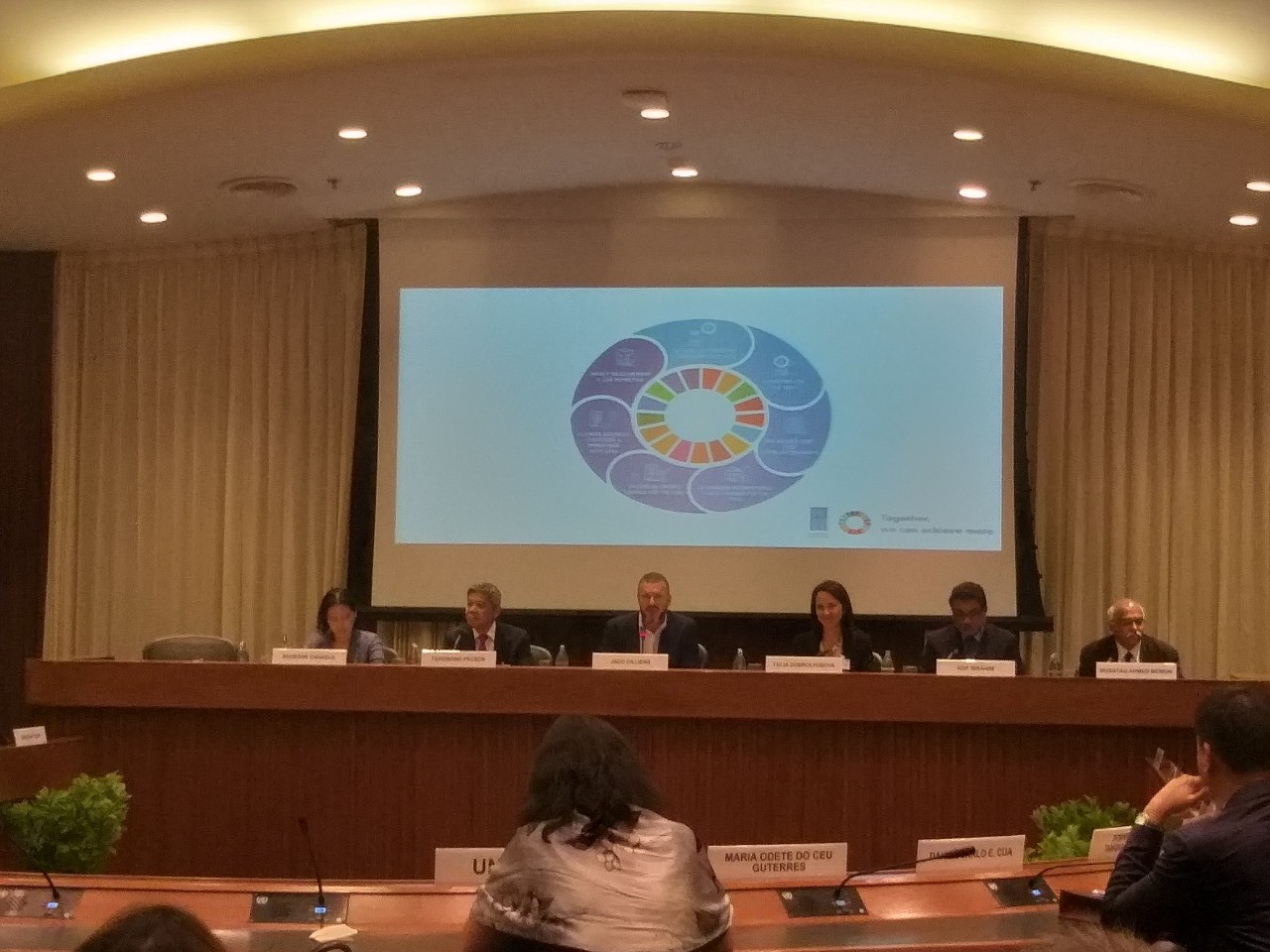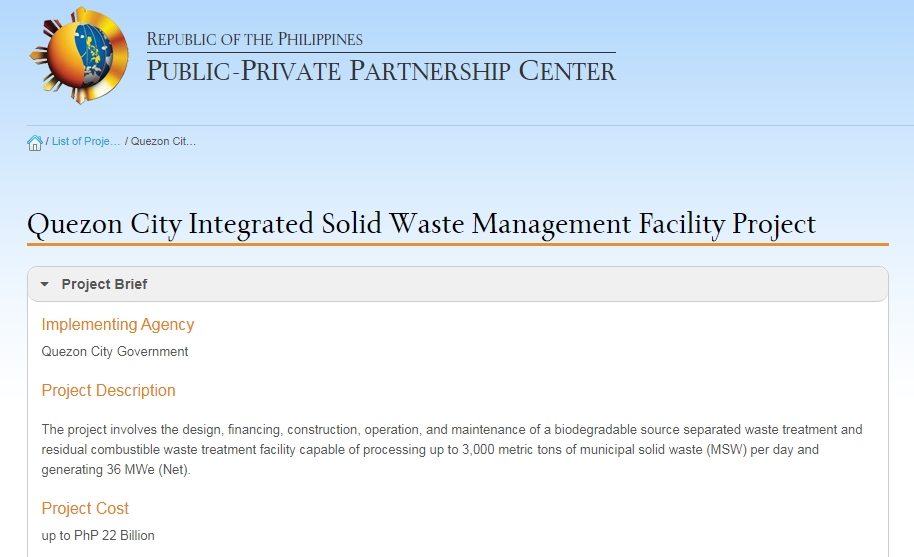The country’s transition towards a green economy is getting a much-needed boost with the significant financial resources from the private sector in “green” projects.
At the recent 2019 Asia-Pacific High-Level Forum on Green Economy in Bangkok, Thailand, Undersecretary Ferdinand Pecson, executive director of the Public-Private Partnership Center (PPP Center), shared to forum participants how the Philippines attracts “green” investments.
The PPP is a popular concept for green growth projects worldwide. In the Philippines, green investments through public-private partnership are relatively new.
“In order to come up with PPP that are green, one of the things that we’ve done is to come up with a policy on mainstreaming environment, social, and gender concerns. The idea is to ensure that the environmental, social, and gender concerns and displacement of affected people are factored into the process,” said Pecson, who was one of the speakers at the forum that aimed to showcase the impact of successful green economy solutions crafted and tested by countries in the Asia Pacific region.
In December 2018, the PPP Governing Board issued a resolution titled “Safeguards in PPP: Mainstreaming Environmental, Displacement, Social and Gender Concerns” with the aim to prevent negative impacts on people and the environment in the implementation of PPP projects, Pecson said.
“Both partners would have to enforce and implement to ensure that goals are being met. We have released this set of guidelines, published in December 14, and is now being used moving forward in our process in the Philippines,” he said.
 Undersecretary Ferdinand Pecson (second from left), Executive Director of the Public-Private Partnership Center, is one of the resource speakers at the 2019 Asia-Pacific Regional Ministerial Conference on Green Economy held in Bangkok, Thailand. (PNA photo)
Undersecretary Ferdinand Pecson (second from left), Executive Director of the Public-Private Partnership Center, is one of the resource speakers at the 2019 Asia-Pacific Regional Ministerial Conference on Green Economy held in Bangkok, Thailand. (PNA photo)For 2019, the PPP Center, through the Project Development and Monitoring Facility (PDMF), is drumming up its support for more green projects that have climate resiliency components, especially at the local level, to address the threat of climate change in the Philippines with the help of the private sector.
“'Yung (the) project development and monitoring facility is a revolving fund. A big part of the fund is coming from the Philippine government. That fund had helped a number of PPP projects pero (but) at the national level,” Pecson said in an interview with the Philippine News Agency (PNA).
“That is key to helping agencies of government come up with projects that are not only economically viable but also bankable, meaning there are private investors willing to put in money to the project, so now, that fund is being offered also to the local government units,” he added.
The Philippines is also tapping other funding sources.
In June this year, the Asian Development Bank provided an additional USD3 million technical assistance grant to the Philippine government through the PPP Center.
The grant, financed by the Urban Climate Change Resilience Trust Fund, will support the PPP Center’s capacity building program and the development and procurement of local climate-resilient PPP projects through the PDMF.
Pecson said this would further enhance PPPs at the local level.
The PPP Center would help strengthen the capacities of local government units (LGUs) and other local implementing agencies, such as water districts, state universities and colleges, among others, to include climate change mitigation and adaptation components in their portfolio of PPP projects.
The PDMF allows them to access a panel of PPP experts in climate change resiliency, which will provide assistance in developing and implementing their PPP projects.
Pecson said the PPP Center is now working closely with the regional offices of the National Economic Development Authority (NEDA) to assist LGUs to develop their PPP projects, giving them a wider reach.
Green projects
Several green projects involving solid waste management are being undertaken by local governments through PPP.
According to the PPP Center, these projects include the Quezon City Integrated Solid Waste Management Facility which can process waste and become renewable energy; the Cagayan de Oro Septage Management; and the Cebu City Solid Waste Management.
 Screen capture of the description of one of the "green" public-private partnership projects undertaken by the local government of Quezon City
Screen capture of the description of one of the "green" public-private partnership projects undertaken by the local government of Quezon CityVertical infrastructure projects make up most of the PPPs, with 45 projects, followed by 16 from the energy and solid waste management sectors, 14 from water supply and sanitation, and three from other sectors, it added.
Challenges
For these kinds of PPP projects to materialize, Pecson said there is a need to address the provision of technical assistance and right policy framework.
Since there are few PPP projects, Pecson said one of the challenges of agencies embarking on PPP is the lack of expertise and know-how to properly structure and develop these kinds of projects, especially green ones.
Pecson said they are looking at various ways to support local governments to tap funding for climate-resilient projects.
“Fortunately, there are agencies, especially donor agencies, that are willing to help and it’s good also they’re linking it to green projects,” he said.
“I don’t see all local governments doing it and for their infrastructure projects, they would still do it the traditional way and that makes sense if there’s better value for money doing traditional. But for projects where they lack expertise or capacity, knowhow or skills and the private sector would do a better job then, that’s were PPP would come in. In that case, we step in to help to make the process happen,” he added.
Transition to green economy
A 2018 report of the International Labor Organization titled “World Employment Social Output” recommended that governments should focus on transitioning to renewable energy and consider the environmental impact of processes in the fields of construction, manufacturing, and sustainable agriculture.
In the Philippines, steps have been taken to transition to a green economy with the passage of vital laws, including the Renewable Energy Act of 2008.
The law aims to accelerate the exploration and development of renewable energy resources, institutionalize national and local capabilities in the use of renewable energy systems, and promote its efficient and cost-effective commercial application by providing fiscal and non-fiscal incentives.
In April 2016, Republic Act 10771, or the Green Jobs Act, was signed into law promoting the creation of green jobs, and providing incentives to firms that generate these jobs.
Some green jobs include renewable energy experts, disposal officers, operators of sanitary landfills, and wind-turbine technicians, among others.













